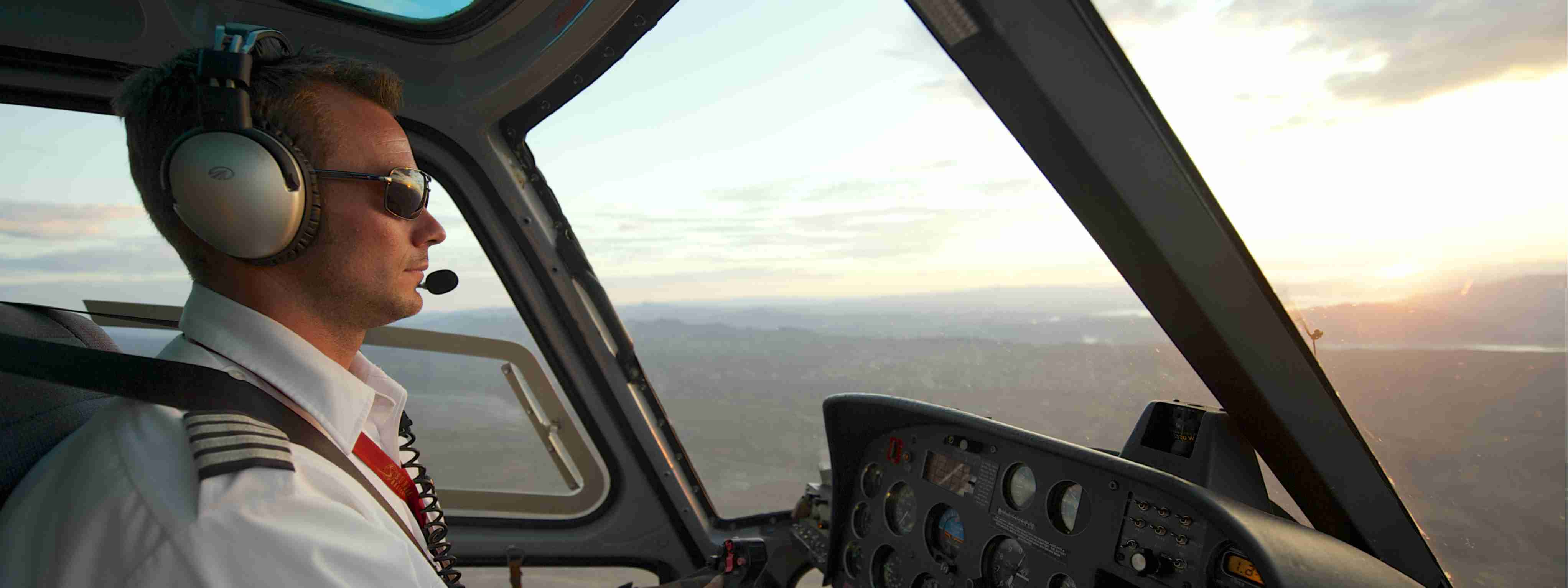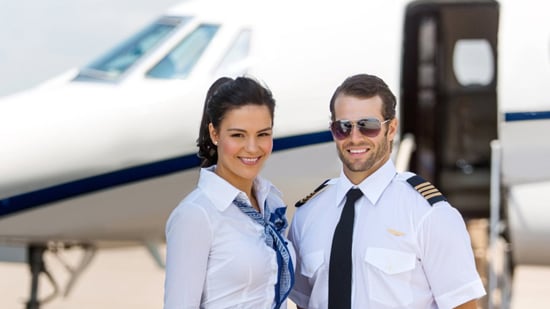Five of the highest paid aviation jobs
Whether you’re interested in becoming a pilot, avionics mechanic, air traffic controller or flight attendant, there’s a variety of potential job paths in the aviation industry. We take a look at some of the highest paying aviation jobs.
Airline pilot

Average annual salary: £79,000
Airline pilots are some of the highest paid professionals in the aviation industry, earning an average salary of £79,000 per year. However, this generous wage reflects the extreme demands of the role. Being a pilot requires specialised training and the ability to stay calm under pressure and deal with emergencies. As well as flying, pilots must also understand high-tech cockpit technology and have exceptional communication skills.
According to the British Airline Pilots Association (BALPA), it can take several years and cost up to £80,000 to train for your airline transport pilot licence (ATPL). The process involves a medical, 750 hours of ground school training, exams and a minimum of 195 hours of flight training to become a first officer. After that, first officers must complete a further 1,500 hours of flying before applying for pilot jobs.
Aerospace project engineer

Average annual salary: £71,000
This incredibly specialised job requires a Bachelor’s degree and often a Master’s in aerospace sciences, avionics or aeronautical engineering. Once qualified and experienced, top aerospace project engineers can earn over £100,000 per year. The role involves working with other engineers to design, test, refine and maintain aircraft and avionics equipment to client specifications.
So what skills do you need to become an aerospace project engineer? Applicants must be able to think of innovative solutions to problems; possess good maths, management and communication skills; and be able to use computer assisted design (CAD) software. There’s also an element of sticking to client budgets and briefs, as well as keeping up-to-date with new aviation technologies.
Air traffic controller

Average annual salary: £65,500
There’s fierce competition for air traffic controller jobs, which offer an average salary of almost £66,000 a year. While there aren’t any formal requirements for the role, applicants are usually expected to have a degree and must pass a difficult selection process that includes completing a training programme of up to three years. Jobs are based in traffic control towers or centres and the National Air Traffic Services is one of the key organisations for training and recruiting in the UK.
A good air traffic controller must demonstrate sharp concentration and attention to detail, as it’s their responsibility to monitor traffic and keep the airways safe. Duties include tracking aircraft distances and directions, liaising with pilots and monitoring ground movements, take-offs and landings. Air traffic controllers also need to be able to use technical radar and radio communication equipment.
Air marshal
Average annual salary: £54,500
Air marshals, also known as sky marshals, are operatives who provide on-flight security services. In the UK, this job is performed by Met Police officers who’ve completed intensive training courses. An air marshal’s duties include acting as a plain-clothed security officer to provide on-flight security and deal with terrorism incidents. Marshals may also work in airports and must have good observational skills to detect suspicious activity. This is a high-pressure job that requires extreme attention to detail.
Aircraft mechanic

Average annual salary: £44,500
Aircraft mechanics (also known as airframe and powerplant mechanics) perform repairs, inspections and maintenance on all kinds of aircraft. They must be able to diagnose and fix everything from electrical problems to mechanical failures across all parts of the plane, including the brakes, landing gear and engine. This requires supreme troubleshooting skills and a detail-oriented mind. In the UK, routes into the role include completing a degree followed by an apprenticeship with an airline manufacturer, operator or engineering company. Mechanics can work across many types of aircraft or choose to specialise, and must stay constantly up-to-date with industry regulations and standards.
Other top aviation jobs
If you’re still considering other career paths, here are some more popular options in the aviation field and their average annual salaries:
- Flight instructor (£52,500)
- Flight dispatcher (£38,500)
- Avionics technician (£38,500)
- Flight attendant (£30,500)
- Ground attendant (£29,500)
Looking for opportunities in the aviation field? Air Charter Service is passionate about supporting the next generation of aviation leaders and scientists, offering student grants and scholarships of up to £4,000 per student to kick-start your career. This could help to offset the cost of tuition fees and research so you can find employment in your chosen field. Find out more about eligibility and how to apply for an ACS aviation grant or scholarship here.

 Whether you’re interested in becoming a pilot, avionics mechanic, air traffic controller or flight attendant, there’s a variety of potential job paths in the aviation industry. We take a look at some of the highest paying aviation jobs.
Whether you’re interested in becoming a pilot, avionics mechanic, air traffic controller or flight attendant, there’s a variety of potential job paths in the aviation industry. We take a look at some of the highest paying aviation jobs.

